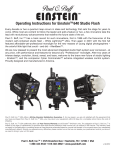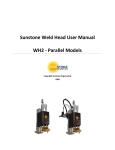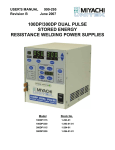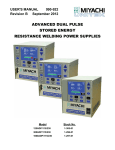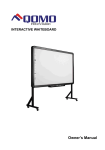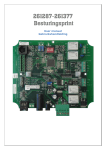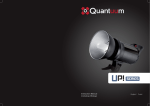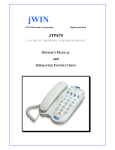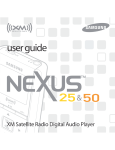Download CD Single Pulse Systems
Transcript
Sunstone Capacitive Discharge Welders CD Single Pulse Systems 2 3 Sunstone Capacitive Discharge Welders CD Single Pulse Table of Contents Forward . . . . . . . . . . . . . . . . . . . . . . . . . . . . . . . . . . . . . . . . . . . . . . . . p.5 Manufacturer’s Contact Information . . . . . . . . . . . . . . . . . . p.5 Welding Safety & Precautions . . . . . . . . . . . . . . . . . . . . . . . . p.7 Chapter 1: Welder Overview . . . . . . . . . . . . . . . . . . . . . . . . . . p.14 Features . . . . . . . . . . . . . . . . . . . . . . . . . . . . . . . . . . . . . . . . . p.14 Applications . . . . . . . . . . . . . . . . . . . . . . . . . . . . . . . . . . . . . . p.15 Chapter 2: Resistance Welding . . . . . . . . . . . . . . . . . . . . . . . p.16 What is Resistance Welding? . . . . . . . . . . . . . . . . . . . . p.16 Tips . . . . . . . . . . . . . . . . . . . . . . . . . . . . . . . . . . . . . . . . . . . . . . . p.18 Chapter 3: Set Up . . . . . . . . . . . . . . . . . . . . . . . . . . . . . . . . . . . . . p.20 Pre Setup Info . . . . . . . . . . . . . . . . . . . . . . . . . . . . . . . . . . . . p.20 Welder Setup . . . . . . . . . . . . . . . . . . . . . . . . . . . . . . . . . . . . p.21 Weld Head . . . . . . . . . . . . . . . . . . . . . . . . . . . . . . . . . . . . . . . . p.22 Hand Held Attachments . . . . . . . . . . . . . . . . . . . . . . . . . p.23 Chapter 4: Operating Instructions . . . . . . . . . . . . . . . . . . . p.25 Chapter 5: Technical Data . . . . . . . . . . . . . . . . . . . . . . . . . . . . p.30 Appendix A - Glossary . . . . . . . . . . . . . . . . . . . . . . . . . . . . . . . p.33 Appendix B - Warranty . . . . . . . . . . . . . . . . . . . . . . . . . . . . . . . p.34 4 Foreword: Thank You for Choosing Sunstone Welders and congratulations on your purchase! You are now the proud owner of a Sunstone Capacitive Discharge (CD) Single Pulse (SP) Welder. This manual was designed to have you welding safely within minutes of unpacking your new welder. Please read and follow all safety precautions before proceeding with the welding process. At Sunstone Engineering we are committed to producing quality products and ensuring complete owner satisfaction. If you require assistance after reading this manual please contact us with the information provided below. Sunstone Engineering R&D Corp. 1693 American Way Suite #5 Payson, UT 84651 Email: [email protected] Voice: 801-658-0015 Fax: 866-701-1209 NOTE: The information contained in this manual is subject to change as improvements are made to our products. Visit www.SunstoneSpotWelders.com for the latest version of this document. 5 6 Welding Safety & Precautions Read Before Welding The following safety advice is generalized advice for the welding industry. These safety precautions are not all inclusive. All users should exercise caution while using this device. The following groups of symbols are warning symbols: CAUTION ELECTRIC SHOCK HAZARD, EYE PROTECTION REQUIRED. Consult these symbols and the related instructions listed next to the symbols for proper action when dealing with these hazards. READ INSTRUCTIONS • Read the owner’s manual before using the welder. • Only personnel trained and certified by the manufacturer should service the unit. • Use only genuine replacement parts from the manufacturer. • Never open welder to perform any maintenance operation inside the unit. 7 SAFETY PRECAUTIONS FOR FIRE OR EXPLOSION There is a possibility that flying sparks, hot work pieces, and/ or hot equipment can cause fires and burns. Ensure that your work area is clean and safe for welding before starting any weld job. • • • • • • • • • • • • Wear appropriate eye protection at all times while using the welder. Do not install or operate unit near combustible surfaces. Do not install or operate unit near flammables. Do not weld where flying sparks can strike flammable material. Remove all flammable materials from the welding area. If this is not possible, tightly cover them with approved covers. Protect yourself and others from flying sparks and hot metal. Do not weld where the atmosphere may contain flammable dust, gas, or vapors. Remove any combustibles, such as butane lighters or matches, from your person before doing any welding. Watch for fire and keep a fire extinguisher nearby. Do not overload your building’s electrical wiring – be sure the power distribution system is properly sized, rated, and protected to handle this unit. Do not exceed the equipment’s rated capacity. Use only correct fuses or circuit breakers. Do not oversize or bypass them. SAFETY PRECAUTIONS FOR ELECTRICAL SHOCK Sunstone capacitive single pulse welders are equipped with universal power supplies and can be used with both 110/220V AC wall power. No voltage selection is required prior to connecting and powering on the welder. The welder 8 will detect the voltage, and make the appropriate adjustments automatically. Touching live electrical parts can cause fatal shocks or severe burns. The input power circuit and the internal circuits of the Sunstone welder are live when the power switch is turned on. Additionally the internal capacitors remain charged for a period of time after the welder is turned off and/or power is disconnected. Incorrectly installed or improperly grounded equipment is a hazard. Do not operate welder in a wet/damp environment. • Care should be taken not to short across the positive and negative terminals. At full power, the weld current carries thousands of amps and is dangerous if the terminals are accidentally bridged. • All welds are performed at low voltage for increased safety of operation. • Do not wear metal jewelry when welding. The terminals are safe to touch without fear of arcing as long as no metal is on your hands. • When altering or maintaining any part of the welding path (such as swapping electrodes or cables), turn the unit off. • Do not touch live electrical parts. • Wear dry, hole-free insulating gloves and body protection. • Properly install and ground this equipment (refer to the grounding codes and specifications of the area you live in). • Do not weld with wet hands or wet clothing. • Always verify the supply ground – check and be sure that the input power cord ground wire is properly connected to a ground terminal in the disconnect box or that the input power cord plug is connected to a properly grounded receptacle outlet. Do not remove or bypass the ground prong. • Keep cords dry, free of oil and grease, and protected from hot metal and sparks. • Frequently inspect the input power cord and ground conductor for 9 damage or bare wiring – replace immediately if damaged – bare wiring can kill. Check ground conductor for continuity. • Turn off all equipment when not in use. • Use only well-maintained equipment and repair or replace damaged parts at once. PERSONAL PROTECTIVE EQUIPMENT RECOMMENDATIONS FOR FLYING SPARKS AND ARC RAYS It is essential for every person in the immediate work area to wear/utilize proper Personal Protection Equipment. There is a possibility that sparks can fly off from the weld joint area; therefore, take the necessary precautions to avoid trapping a spark within your own clothing. • Wear protective garments such as oil-free, flame-resistant leather gloves, heavy shirt, cuff-less trousers, high shoes, and a cap. Avoid synthetic fibers as they melt easily. • Use an approved face shield or safety goggles with side shields when welding or when observing others performing welds. SAFETY PRECAUTIONS FOR HOT METAL AND CABLES Welding material that has a high thermal conductivity will cause metal to heat rapidly. Repetitive welds in the same location can also cause metal to heat rapidly. • Avoid touching weld spots immediately after the weld has been performed as they will be hot. • Do not touch hot weld areas barehanded. • Allow sufficient cooling time before handling welded pieces. 10 • Welding cables can become extremely hot. After extended use, be cautious when handling the weld cables. SAFETY PRECAUTIONS FOR FUMES AND GASES Welding can produce fumes and gases. Breathing these fumes and gases can be hazardous to your health. Sunstone welders produce minimal fumes and gases when compared to large-scale welders. Though not required, some form of ventilation is recommended. • Keep fumes away from face. • Do not breathe the fumes. • Ventilate the area and/or use local forced ventilation at the weld spot to remove welding fumes. • If ventilation is poor, wear an approved air-supplied respirator. • Read and understand the Material Safety Data Sheets (MSDS) and the manufacturer’s instructions for metals, consumables, coatings, cleaners, and degreasers. • Do not weld in locations near degreasing, cleaning, or spraying operations. The heat and rays of the weld can react with vapors to form highly toxic and irritating gases. • Do not weld on coated metals, such as galvanized, lead, or cadmium-plated steel, unless the coating is removed from the weld area, the work area is well ventilated, and the operator is wearing an air-supplied respirator. The coatings and any metals containing these elements can give off toxic fumes if welded. 11 SAFETY PRECAUTIONS FOR FALLING EQUIPMENT • Use a working surface of adequate physical strength to support the welding unit during operation or storage. • Secure welding unit during transport so that it cannot tip or fall. MAGNETIC FIELDS CAN AFFECT IMPLANTED MEDICAL DEVICES • Wearers of pacemakers and other implanted medical devices should keep away. • Implanted medical device wearers should consult their doctor and the device manufacturer before going near arc welding, spot welding, gouging, plasma arc cutting, or induction heating operations. OVERUSE CAN CAUSE OVERHEATING • Allow a cooling period between strenuous welding schedules; follow rated duty cycle. • If overheating occurs often, reduce duty cycle before starting to weld again. PRINCIPAL SAFETY STANDARDS Safety in Welding, Cutting, and Allied Processes, ANSI Standard Z49.1,from Global Engineering Documents (phone: 1-877-413-5184, website:www.global.ihs.com). OSHA, Occupational Safety and Health Standards for General Industry, Title 29, Code of Federal Regulations (CFR), Part 1910, Subpart Q, and Part 1926, Subpart J, from U.S. Government Printing Office, Superintendent of Documents, P.O. Box 371954, Pittsburgh, 12 PA 5250-7954 (phone: 1-866-512-1800) (there are 10 Regional Offices—phone for Region 5, Chicago, is 312-353-2220, website: www.osha.gov). National Electrical Code, NFPA Standard 70, from National Fire Protection Association, P.O. Box 9101, Quincy, MA 02269-9101 (phone: 617-770-3000, website: www.nfpa.org and www.sparky.org). Canadian Electrical Code Part 1, CSA Standard C22.1, from Canadian Standards Association, Standards Sales, 5060 Mississauga, Ontario, Canada L4W 5NS (phone: 800-463-6727 or in Toronto 416-747-4044, website: www.csa-international.org). Safe Practice For Occupational And Educational Eye And Face Protection, ANSI Standard Z87.1, from American National Standards Institute, 25 West 43rd Street, New York, NY 10036–8002 (phone: 212-642-4900, website: Sunstone Experience At Sunstone we are committed to producing quality products and ensuring complete owner satisfaction. If you require assistance after reading this manual please contact us with the information provided below. Sunstone Engineering R&D Corp. 1693 American Way Suite #5 Payson, UT 84651 Email: [email protected] Voice: 801-658-0015 Fax: 866-701-1209 13 ch.1 Chapter 1: Welder Overview Features Sunstone spot welders are simple to use with an intuitive and user-friendly interface. Each of the Single Pulse CD welders can be adjusted and finetuned to match the requirements of countless applications. A digital screen displays total weld energy ensuring detail and precision. When combined with Sunstone’s new line of weld heads or hand attachments, CD welders perform strong and repeatable welds for high levels of consistency and quality control. • • • • • • • • • • • • • • • 14 Available with 100 or 200 watt-seconds of energy Single Pulse Operation Microprocessor Controlled Thermal Protection Circuit - Internal Monitoring Audible ‘Ready’ Notification Adjustable pulse width Energy storage adjustable from 0.1% to 100% capacity Up to 600 welds/min 110/220VAC Switching Power Supply Simple, user-friendly interface Quick energy release for welding highly conductive metals Small heat effected weld zones Repeatable energy release independent of line voltage fluctuations Capable of extremely fine energy adjustment. Infinitely adjustable pulse width ch.1 Applications Capacitive Discharge (CD) resistance welders have many advantages over other types of welders. One such advantage is the ability to achieve a quick energy release, which can result in successfully welding highly conductive metals such as copper. Also, this quick energy release is very concentrated at the weld spot, thus creating a very small heat-affected zone. Having a small heat-affected zone means that delicate projects and heat sensitive applications can we welded without jeopardizing or damaging the welded pieces. Some typical applications welded with Sunstone single pulse CD welders are: • Cross wires •Thermocouples • Strain gauges • Electronic components • Thin copper, aluminum, brass, and steel wires and sheets • Miscellaneous resistive welding applications • Research & development Sunstone capacitive discharge spot welders are the most effective, precision fine-spot resistance welders on the market. 15 ch.2 Chapter 2: Resistance Welding What is Capacitive Discharge Resistance Welding? Capacitive discharge resistance welding uses capacitors to store energy for quick release. Capacitive resistance welders, also called capacitive discharge or CD welders, have many advantages over other welder types: • • • • 16 Quick energy release for welding highly conductive metals such as copper. Small heat effected weld zones. Repeatable energy release independent of line voltage fluctuations. Capable of extremely fine energy adjustment. ch.2 Weld nugget formation takes place during the first few Milli-seconds of the welding process. A CD welder allows extremely fast energy release with large peak currents. This means that more of the energy goes into weld formation and less into heating surrounding material. The heat-affected zone, where rapid heating and cooling have changed the properties of the metal, is localized to a small area around the weld spot. The quick discharge rate of CD welders also allows electrically and thermally conductive materials, such as copper or aluminum, to be welded. Capacitive welders deliver repeatable welds even during line voltage fluctuations because weld energy is stored before use. WELD FORMATION Spot welding relies on metal resistivity to heat and fuse metal. A large current is passed through the workpiece metal. Energy is dissipated due to metal resistance in the form of heat which melts and fuses the weld materials. There are two phases to the melting process. The welder must overcome both the material contact resistance and the bulk resistance of the material. FIGURE 1: Sample Capacitor Discharge Curve. 17 ch.2 Figure 2 below shows an example of a micro-scale surface profile. On the micro-scale, material surfaces are rough and only contact in a limited number of locations. In the first few Milli-seconds of weld formation, the highresistance metal bridges melt, allowing other bridges to come into contact to continue the melting process. When all of the bridges have fused, the contact resistance is zero. The bulk resistance of the metal then plays the final role in the weld formation. Tips WELD PRESSURE Several other factors play a part in the contact resistance. The larger the contact resistance the hotter the resultant weld. On the micro-scale, contact resistance is reduced when more metal bridges or contact points are formed (see Figure 2). Using more electrode pressure creates more metal bridges. This results in a lower contact resistance and a cooler weld. Conversely, light electrode pressure results in less metal contact, higher resistance, and a hotter weld. An appropriate amount of pressure should be used to insure good weld strength. FIGURE 2: On the micro-scale, surface roughness limits surface-to-surface contact. More contact points result in a lower contact resistance. 18 ch.2 ELECTRODE CONFIGURATIONS Figure 3 shows several electrode configurations used in resistance welding. Figure 3a is called a direct weld. Current is passed from one electrode through both workpieces and out an opposing electrode. Figure 3b shows a step electrode configuration. This configuration is used when there is access to only one side of the workpiece and an electrode can be placed on both materials. Figure 3c is a series configuration. Electrodes can only be placed on one metal surface from one side. Current is divided between the two parts. This weld configuration requires more weld energy. FIGURE 3: Examples of resistance welding electrode configurations: a. direct, b. step, c. series. WELD ENERGY Sunstone capacitive Single Pulse welders allow adjustment of the stored energy via an energy adjustment dial. The energy is then displayed in watt seconds (Joules) on the front panel. 19 ch.3 Chapter 3: Setup Pre Setup Information VOLTAGE AND POWER REQUIREMENTS Sunstone Capacitive Discharge Single Pulse (CDSP) welders are equipped with universal power supplies and can be used with both 110/220V AC wall power. No voltage selection is required prior to connecting and powering on the welder. The welder will detect the voltage, and make the appropriate adjustments automatically. WELD ACTUATION The CDSP welders are actuated by means of an external trigger port located on the back of the welder (see Figure 4). The trigger uses a DIN 3 connector and requires shielded wire. Figure 4 shows the proper pin placement for custom external trigger cables. The standard external trigger cable connector is an SD-30LP made by CUI Inc. FIGURE 4: External trigger wiring diagram, looking at back of welder, for the welder back panel connector. N.O. stands for Normally Open. WELDER BEEPS Sunstone CDSP welders are equipped with a beeper. When enabled, the welder will beep when the unit has reached its targeted weld energy. This signifies that the unit is ready to weld. Users can turn Welder Beeps on or off with a switch located on the back of the welder. 20 ch.3 THERMAL PROTECTION Sunstone capacitive Single Pulse welders are equipped with temperature sensors. If the unit is close to overheating, the operator will hear six successive beeps and will not be able to weld during this time. When the unit has cooled, the operator will hear three successive beeps, signifying that the unit is again ready to weld. (*These warning beeps will still occur even if the “Welder Beeps” option is turned off.) To ensure proper cooling, the welder flow paths shown in Figure 5 should be unobstructed. Please maintain a clear space of 6+ inches around the welder vents. FIGURE 5: For proper cooling, ensure all vent locations are unobstructed. Welder Setup QUICK START SET UP OF CDSP WELDER 1. Remove the welder from the box and place it on a secure work surface. 21 ch.3 4. 3. 6. 2. 5. 2. Turn Beep on or off according to user preference. 3. Plug in the external Trigger. 4. Attach weld head or hand attachment cables to negative and positive terminals. 5. Plug the power cord into the back of the welder and into an AC power outlet. 6. Turn the welder on. Weld Head Setup QUICK START SET UP OF WELD HEADS TO CDSP WELDERS Sunstone Engineering manufactures a variety of Weld Heads to accommodate a diverse range of welding applications. Both our parallel and opposed Weld Heads provide a great amount of control and precision. 22 ch.3 1. Remove the Weld Head from the box and place it on a secure work surface. 2. Attach weld head cables to negative and positive terminals. 3a. Manual Models - See weld head user manual for setup. 3b. Pneumatic Models - Plug the welder power cable into the female port on the pneumatic foot pedal cable, then plug the pneumatic foot pedal cable into an AC power outlet. 4. Turn the welder on, actuate the weld head, and set the desired energy setting on the weld head. Welder Power Cable Foot Pedal Cable AC Power Outlet 5. *See weld head user manual for more precise setup information. Hand Held Attachment Setup QUICK START SET UP OF HAND HELD ATTACHMENTS TO CDSP WELDERS Sunstone Engineering manufactures a variety of welding hand pieces to accommodate a diverse range of welding applications. Hand piece welding attachments allow ease of use and versatility. 1. Remove the Hand Held Attachment from its package. 23 ch.3 2a. Single Probe, Dual Probe, and Tweezer Hand Held Attachments - Connect the Hand Held Attachment cables to the negative and positive terminals on the front of the welder, then connect the 3 pin actuation foot pedal cable to the back of the welder. 2b. Pressure Actuated Hand Attachments - Connect the Hand Held Attachment cable to either of the terminals on the front of the welder and the grounding clip cable to the other terminal. Then attach the trigger cable to the back of the welder. 3. Plug the welder power cable into an AC power outlet. 4. Turn the welder on and set the desired energy settings. 24 ch.4 Chapter 4: Operating Instructions LCD Screen LCD DISPLAYED MESSAGES Messages are shown on the LCD display to indicated that a change is being made to the welder. Here are a list of messages and what they indicate: POWER ON – This message is displayed when the welder has been turned on. READY – This message is displayed after you weld and the unit is ready to weld again. Beep On/Off – Shows up when you toggle the “Beep Enabled” switch. You will hear audible beeps when on. Weld On/Off – Shows up when you toggle the “Pulses” switch. The welder will not weld with this switch off. P1 On/Off – Will be displayed when pulse 1 has been switched off or on. P2 On/Off – Will be displayed when pulse 2 has been switched off or on. No Pulse – This indicates that both pulses have been turned off. At least one pulse has to be on in order to weld. NEW P1/P2 – This message will display when either pulse 1 or pulse 2 is adjusted. Cooling/Enabled – When the unit overheats, it will display “Cooling” until it has reached an operable temperature. Then the welder will display “Enabled” to let you know that it is done cooling. Pulse Control SINGLE PULSE WELDING Sunstone Single Pulse welders have one pulse width energy control. The blue back-lit LCD displays the pulse percent of total stored energy and the total 25 ch.4 stored energy in Joules (J). The pulse can be adjusted separately or turned off if desired. The pulse is adjustable between 1% and approximately 30% of the total stored energy. Sunstone single pulse welders allow a large degree of control over the entire welding process. The energy stored and released with each weld discharge can be adjusted down to very fine increments for welding very small parts. The pulse width dial allows fine control over the duration of the weld pulse and the energy released with each pulse. The weld energy knob controls the total welder energy storage and also sets the peak weld current. Typical values of peak current with weld energy and load are given in Table 1. The amount of energy released for each pulse width setting is shown in Table 1 and is also a function of the welding load (resistance). FIGURE 6: Welder front panel features: Blue LCD energy indication display, easy to use Pulse Width and Weld Energy controls, hook-up bars that allow ¼” studs, an On/Off switch, and 110/220VAC voltage selection. 26 ch.4 FIGURE 7: Welder back panel: External trigger port, 5A fuse, 110 or 220VAC voltage input, and Beep On/Off “ready” notification. SETTING THE PULSE The Pulse energy setting should be chosen such that the parts adhere weakly. To determine the pulse do a series of test welds starting at a low pulse energy setting. Increase the pulse energy about 3% every test until the parts stick together to achieve maximum heat. ENERGY ADJUSTMENT Each Sunstone welder is fully adjustable between its minimum and maximum energy. Sunstone Capacitive Single Pulse welders have weld repetition rates of up to 600 welds/min. See Table 3 for additional details on weld repetition rates. The weld energy knob is used to set the total welder energy storage and is also used to set the peak weld current. The pulse widths are then adjusted to provide the appropriate weld energy released during each weld. 27 ch.4 Controlling energy storage and pulse width allows the user to manage both the energy released during the welding process and the peak electrical current experienced by the weld material. These parameters are important when welding materials that have diverse thermal and electrical properties. There are several factors that should be considered when selecting the correct pulse width setting. For example, when welding highly conductive materials such as copper, the peak weld current must be higher than resistive materials (e.g. steel). Thus welding a thin copper part may require high weld energy displayed on the screen (high peak current) but a small pulse width (to produce a small total energy released). Conversely a thin steel part may require a lower displayed weld energy (peak current) and longer pulse width (to provide enough energy). Figure 8 shows how voltage, peak current and energy relate. It should be noted that the energy stored can also be thought of as capacitor voltage in this diagram. FIGURE 8: A single pulse capacitive discharge curve. The pulse width setting allows both the peak current and total energy discharged to be specified. 28 ch.4 The weld energy knob is used to set the total welder energy storage and is also used to set the peak weld current. The pulse widths are then adjusted to provide the appropriate weld energy released during each weld. See Table 2 for additional details including weld repetition rates. 29 ch.5 Chapter 5: Technical Data CDSP Data Sheet Info WELDER DATA See the following tables for CDSP technical data. TABLE 1: CD100SP Energy release as a function of weld load and pulse width Pulse Width Dial Marker Pulse Time in ms 1.0mΩ Load % of energy 1.5mΩ Load % of energy 4.0mΩ Load % of energy 1 0.26 ms 27% 20% 12% 1.5 0.28 ms 29% 22% 12% 30 2 0.45 ms 42% 33% 19% 2.5 0.59 ms 51% 40% 24% 3 0.75 ms 60% 48% 29% 3.5 0.90 ms 67% 55% 35% 4 1.06 ms 72% 60% 39% 4.5 1.43 ms 82% 71% 49% 5 2.23 ms 93% 86% 65% 5.5 3.54 ms 99% 95% 81% 6 4.80 ms 100% 98% 89% 6.5 5.51 ms 100% 99% 92% 7 5.54 ms 100% 99% 93% ch.5 TABLE 2: CD100SP Energy release as a function of weld load and pulse width Pulse Width Dial Marker Pulse Time in ms 1.0mΩ Load % of energy 1.5mΩ Load % of energy 4.0mΩ Load % of energy 1 0.47 ms 25% 19% 10% 1.5 0.50 ms 26% 20% 11% 2 0.81 ms 39% 30% 17% 2.5 1.07 ms 48% 37% 22% 3 1.34 ms 56% 44% 27% 3.5 1.63 ms 63% 51% 32% 4 1.90 ms 69% 56% 36% 4.5 2.57 ms 79% 67% 45% 5 4.02 ms 91% 83% 61% 5.5 6.37 ms 98% 94% 78% 6 8.68 ms 99% 98% 87% 6.5 9.92 ms 100% 99% 90% 7 9.98 ms 100% 99% 90% TABLE 3: Peak weld current as a function of weld energy and external welding load Energy (ws) (CD100 | CD200) 1.0mΩ Load (Amps) 1.5mΩ Load (Amps) 4.0mΩ Load (Amps) 0.1 | 0.2 250 200 100 25 | 50 3953 3162 1581 50 | 100 5590 4472 2236 75 | 150 6847 5477 2739 100 | 200 7906 6325 3162 31 ch.5 TABLE 4: Weld repetition rates in welds per minute Weld Energy (% of maximum energy) Nominal Rep Rate CD100SP welds/min Nominal Rep Rate CD200SP welds/min 100% 40 20 75% 50 25 50% 60 30 25% 85 42 2.5% 120 120 TABLE 5: Weld pulse characteristics Model Energy Min - Max Pulse Width Min - Max Pulse Height Minimum CD100SP 0.1ws - 100ws 0.26ms - 5ms 0.2 V CD200SP 0.1ws - 200ws 0.47ms - 10ms 0.2 V TABLE 6: Weld pulse characteristics CD100SP CD200SP Inches cm Inches cm Height 8 20.3 8 20.3 Width 8.5 21.6 8.5 21.6 Depth 11 28 11 28 Weight 17 lbs 8 kg 19 lbs 9 kg 32 Appendix A: Glossary AWG: American Wire Gauge is the standardized wire gauge system. FAYING: Faying surfaces are those that have been joined by a weld. PULSE: A burst of electrical energy. RESISTANCE: Welders rely on a resistance between its terminals to generate the heat needed to melt metals. Ohm’s law states that Voltage = Current X Resistance. SPOT WELD: A small weld done with two electrodes that leaves a circular (or spot) shaped weld nugget. TERMINALS: The copper bars protruding from the case marked with a ‘+’ and ‘-’ are the terminals. 33 Appendix B: Warranty All Sunstone Products come with a 1 year warranty. Sunstone Engineering will repair all defects in craftsmanship without charge during this time period (excluding the cost of shipping). This warranty does not cover damage caused by improper use of Sunstone products. This warranty does not include consumable items, such as welding electrodes. Sunstone Engineering is dedicated to keeping our products operating at peak performance for years to come. Any repairs needed after the 1 year warranty period are performed at cost, typically less than $50 USD. Sunstone Engineering offers a 30 day return policy on all of our products. Before sending a product back, please contact Sunstone Engineering to receive an RMA number. The RMA number should appear clearly on the outside of the package. Customer refunds are accomplished via check. Please note that a 6% restocking fee will apply to all returns. Equipment damaged by improper use or insufficient shipping precautions will be charged additional fees. 34 35 Sunstone Engineering is dedicated to providing quality products and support. Please feel free to call with any questions before or after purchasing our products. Phone: 1-801-658-0015 Fax: 1-866-701-1209 E-mail: Sales [email protected] Technical Support: [email protected] Customer Service: [email protected] Web: www.SunstoneEngineering.com Mail: Sunstone Engineering R&D Corporation 1693 W. American Way Unit 5 Payson, UT 84651 36 37 ch.3 38 ch.3 39 Sunstone Engineering R&D Corporation 1693 W. American Way, Unit 1 Payson, UT 84651 1.877.786.9353 sunstoneengineering.com










































